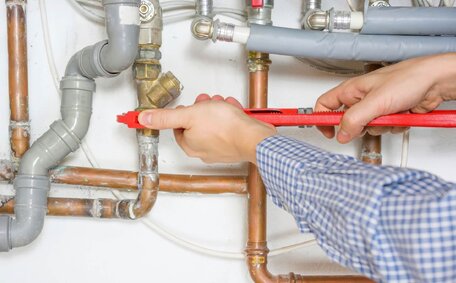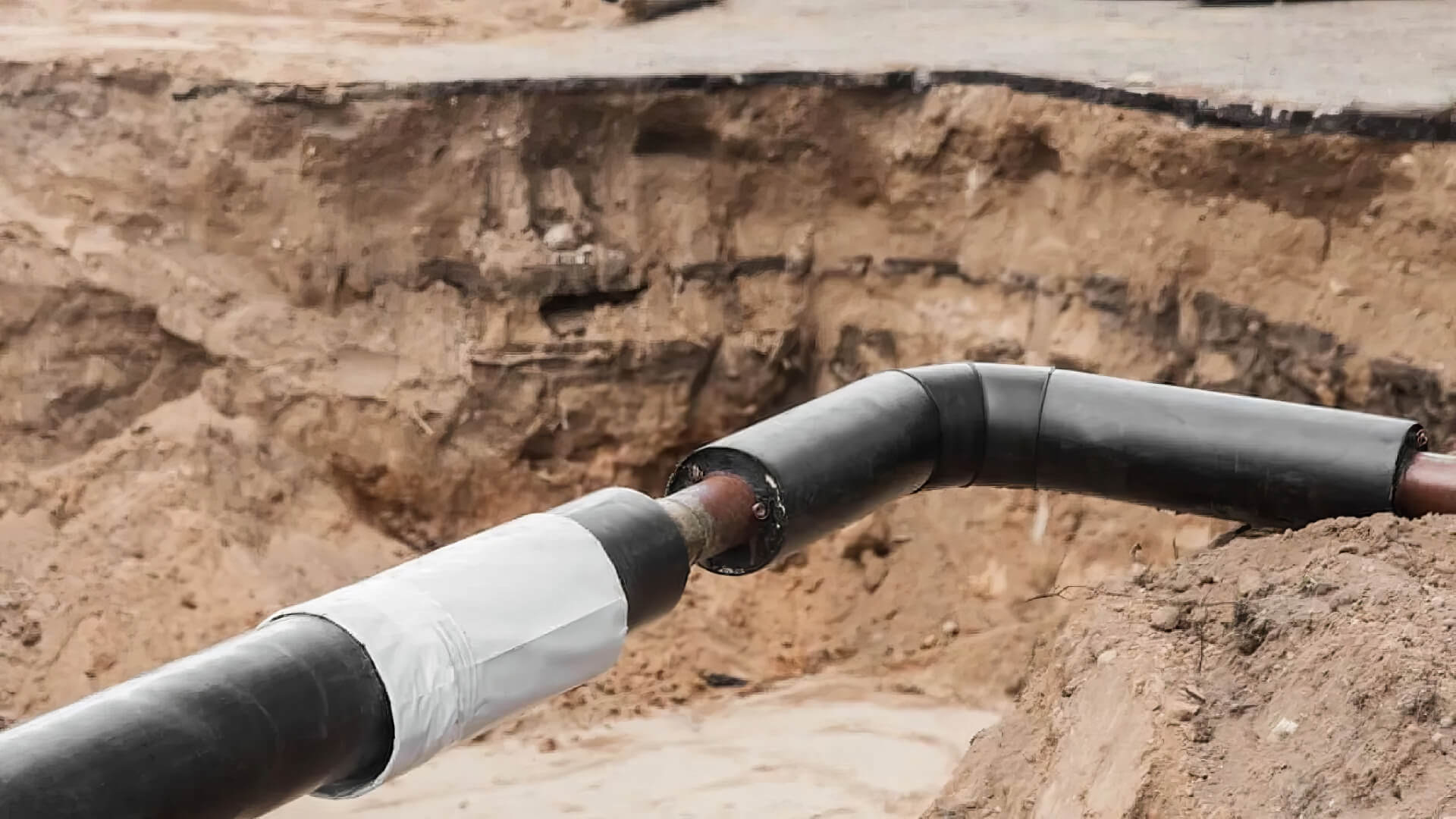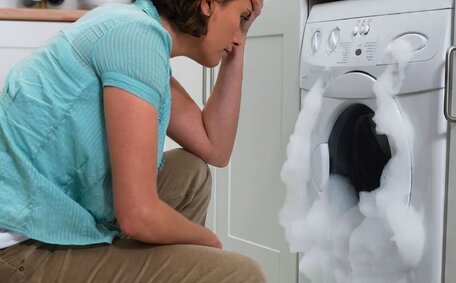
What’s involved in upgrading your gas meter?
Upgrading your gas meter is a simple process completed by qualified technicians. It involves disconnecting your gas supply for 15 minutes to swap the meter. Contact us today for a quote.
Read MoreRelocating a hot water system is feasible, though it involves complex procedures. There are safety issues to consider with gas water heaters in particular, as well as building codes and regulations to follow. Although DIY relocation may be tempting, enlisting a A licensed plumber is essential to avoid potential complications.
Consider layout, available space, and connection logistics when repositioning your hot water system at home. Electrical water heaters also have complex wiring that, if mishandled, can damage the system and requires an expert to disconnect and reconnect safely.
Crucially, relocating hot water appliances and plumbing fittings must adhere to stringent residential building codes. Only qualified technicians can ensure compliance, prevent dangerous gas leaks, and guarantee hot water functionality after the move.
It is highly advisable to recruit a professional for relocating water heater units, particularly gas or electric models, to ensure safety and compliance.
Gas and electric water heaters present considerable risks if connections are not handled correctly. Only a certified plumbing technician has the expertise to make sure the water heater gas appliance is moved safely without the risk of leaks.
Any hot wiring alterations to your electric hot water cylinder must be performed by a licensed electrician or plumber. Faulty electrical work could result in electrocution hazards and improper heating system functioning.
Your hot water systems have multiple pipe connections that require rerouting when you move your water heater to a new location. Expert plumbers can shift water pipelines, aligning them with the location your water heater will occupy in your new layout, ensuring sustained hot water pressure and proper drainage.
By hiring your local qualified service provider in Mortdale, Sydney, water systems can be managed cost-effectively, with full adherence to local building codes and safety regulations.
Embarking on home improvement such as relocating a gas water heater, whether new or previously installed, necessitates certified gas fitters to safely disconnect the unit by turning off gas valves and detaching all gas lines. Next, all water and drainage pipes must be uncoupled, along with any condensate hoses, pressure relief valves, and vent attachments.
Capping gas lines is essential to prevent hazardous leaks that could compromise the integrity and function of the hot water tank during relocation.
The unit can then be transitioned to its new designated space within your house, such as a laundry room or another area, ensuring it meets clearance requirements stipulated by local building codes. Licenced technicians must ensure your new home’s gas and water lines are skilfully installed and appropriately reconnected. Proper ventilation is also legally required for your water heater new installation, in residential dwellings.
When relocating water heaters, one advantage of a gas-powered tankless model is they take up less space inside house areas. If space is at a premium, switching to a compact, energy-efficient tankless model may be beneficial.
Trustworthy professionals can provide guidance that minimises the cost your hot water system might incur during a seamless yet secure transfer process, complying fully with safety regulations.
When moving an electric hot water system, it’s crucial to have a licenced electrician or plumber handle disconnecting and reconnecting all electrical wiring safely. To mitigate electrocution risks, always switch off the power at the mains before manipulating any cables.
The cold water inlet and the hot water outlet pipes will also require detachment, relocating to align with the new setting in accordance with Mortdale’s building regulations. A tempering valve, alongside the pressure relief and expansion valves, and condensate drain may also necessitate relocation.
Considerations around drainage and condensate management are equally important. Electric water heaters produce a continuous trickle of water through pressure relief systems which could cause water damage if not properly drained away in the new location.
Engaging a professional mitigates electrical hazards, secures correct pipe re-connections and drainage compliance, ensuring your electric hot water unit functions optimally post-move.
When you’re relocating a new hot water system in Mortdale, ensuring compliance with the latest building codes and regulations is as crucial as any other preparatory step. Adhering to these codes ensures the safe, efficient, and compliant installation of any system, whether tank-based or tankless.
Read on to discover essential requirements such as sufficient clearance from other fixtures, legally compliant ventilation, and accessible design for maintenance. Especially critical, gas hot water systems must adhere to rigorous venting standards to securely expel combustion byproducts from habitable areas.
Your water heater should be positioned on approved flooring materials with overflow drain pans as the system can leak unexpectedly. The area should be devoid of ignition sources, and inspection might necessitate updates like new earthquake strapping for your header tank.
Ultimately, by hiring reputable plumbers for hot water system installation or relocation, homeowners can relax knowing all local building codes have been followed, ensuring optimal function and longevity of the system.
Contemplating the relocation or replacement of your water tank highlights the appeal of an upgrade—a tankless water heater can be an astute choice for Mortdale homes. Tankless models provide a continuous, on-demand supply of hot water by heating it as it flows through the unit, eliminating the need for a storage tank.
You might ask 'can I move my tankless unit to a different area?' The answer lies in the key benefits of tankless water heaters including money saved on energy bills due to their higher efficiency:
Modern tankless units, potentially your new choice, might operate akin to a solar hot water system, distinguishing them from traditional storage tanks. Instead, they can utilise gas burners or heat pump water heaters that rapidly heat cold water when a hot tap is opened. This provides endless hot water, though flow rates can diminish during very high simultaneous demand.
Given Mortdale’s mild climate, consider the practicality of tankless heaters that fulfill household hot water needs without occupying any floor space. Their durability can increase your property’s value, strengthening the tankless water heater’s reputation as a prudent, long-term choice, suitable for relocating to another location. Discuss with our team the benefits of transitioning to a tankless hot water system and determine if it’s a wise upgrade for your specific relocation scenario.
They provide a continuous, endless supply of hot water. Conventional water tanks store only a finite amount of hot water and can be depleted during extended or concurrent use. Tankless units, however, instantly heat water on demand for your tap sink so you’ll never run out.
They are also far more energy-efficient, using up to 50% less gas or electricity depending on your fuel type. This is because unlike tanks which constantly maintain a reserve of hot water, tankless heaters only heat water when needed.
Their compact size can free up significant space within the home, a stark contrast to cumbersome loft storage tanks. Tankless models mount on walls and are about the size of a carry-on suitcase. This makes them ideal for smaller homes with limited room for relocating hot water systems.
Additional benefits include diminished mineral buildup due to flow-based operation, extensive lifespans up to 20 years, and lower water usage, which may qualify for government rebates. Environmental benefits are also notable—lower energy use equates to less associated greenhouse gas emissions.
For homeowners in Mortdale seeking improved efficiency and space-saving solutions, upgrading to tankless heaters is especially advantageous when relocating existing hot water systems.
Carrying out annual maintenance emerges as a pivotal step in enhancing the efficiency your water heater manifests, as well as its serviceable life, irrespective of any relocation plans.
Draining and flushing to remove sediment is a key maintenance requirement, especially during system relocation, to maintain performance. Mineral deposits from water can accumulate inside tanks and pipes over time, elevating energy consumption, which can be mitigated through regular maintenance. This accumulation diminishes heat transfer efficiency, surges energy consumption, and the old unit’s hot water can in time impair heating elements if sediment isn’t purged.
It extends the operational life of your system, allowing it to work at peak efficiency for years longer.
So whether preparing to relocate your unit or not, be sure to schedule seasonal drain and flush maintenance. This maintenance not only enhances efficiency but also prolongs the life of the unit, deferring the need for costly replacements.
As your water flows through pipes and sits in your tank loft, mineral deposits and sediment accumulate. This buildup insulates, hindering efficient heat transfer from heating elements to the water, diminishing system performance.
Flushing once a year helps remove this sediment before substantial amounts collect:
The drain water may be hot initially so take precautions against burns. Also, redirect mineral-rich water from sediment flushing away from lawns and plant life.
Annual flushing maintenance enhances efficiency by promoting direct contact between water and heating elements. Additionally, it minimizes corrosion, extending the operational life of tanks and piping.
Upgrading your gas meter is a simple process completed by qualified technicians. It involves disconnecting your gas supply for 15 minutes to swap the meter. Contact us today for a quote.
Read MoreWe use only the most durable, long-lasting and eco-friendly pipe relining materials such as PVC and epoxy resin to repair pipes without excavation.
Read MoreChemical drain cleaners contain toxic chemicals like sulfuric acid and sodium hydroxide that can damage pipes, disrupt septic systems, and harm humans if inhaled or make contact with skin. Avoid chemical drain cleaners and call Mortdale Plumbing at [phone] for safe, eco-friendly drain cleaning.
Read MoreMortdale, 2223 NSW
We will call back as soon as possible.




